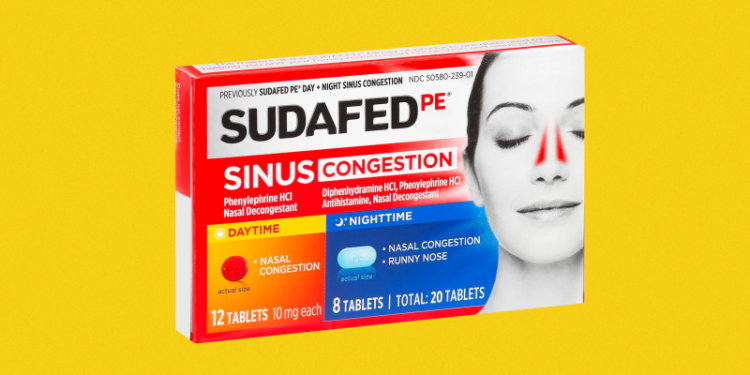“Say Goodbye to CVS Decongestants with Phenylephrine!
CVS Health has made a major decision in its retail pharmacies, opting to discontinue the sale of decongestants containing the active ingredient phenylephrine. The maneuver will reduce the risk associated with over-the-counter cold medicines containing this ingredient, which can cause serious health risks, such as elevated blood pressures and increased heart rate.
The move by CVS Health demonstrates the organization’s dedication to providing safe and effective medications for the public. Phenylephrine has been used as an active ingredient in decongestants for many years, but it has been linked to adverse effects when taken in higher-than-recommended doses. The American College of Chest Physicians has identified these risks in their consensus recommendations, recommending that phenylephrine should not be used as the sole active ingredient for the treatment of upper respiratory infections.
Other health organizations and groups have also expressed concern over the potential health risks associated with the active ingredient. The American Academy of Family Physicians has long been advocating for the removal of phenylephrine-containing decongestants in over-the-counter cold medications. With the announcement by CVS Health, these concerns can now be addressed.
CVS Health has promised to replace the popular phenylephrine-containing medications with decongestants containing safer alternative ingredients. These ingredients are thought to be better-tolerated and have fewer side-effects. For example, one of these ingredients is oxymetazoline, which is thought to be is effective for relieving nasal congestion and symptoms of seasonal allergies without the harsh side-effects associated with phenylephrine.
The removal of phenylephrine-containing medications from CVS Health’s shelves comes as a welcome reprieve to many who have been concerned with the risks associated with these drugs. CVS Health’s decision shows a dedication to safe and effective treatments for their customers, and is an example of how the retail pharmacy is committed to providing the best possible care.
CVS Health has made a major decision in its retail pharmacies, opting to discontinue the sale of decongestants containing the active ingredient phenylephrine. The maneuver will reduce the risk associated with over-the-counter cold medicines containing this ingredient, which can cause serious health risks, such as elevated blood pressures and increased heart rate.
The move by CVS Health demonstrates the organization’s dedication to providing safe and effective medications for the public. Phenylephrine has been used as an active ingredient in decongestants for many years, but it has been linked to adverse effects when taken in higher-than-recommended doses. The American College of Chest Physicians has identified these risks in their consensus recommendations, recommending that phenylephrine should not be used as the sole active ingredient for the treatment of upper respiratory infections.
Other health organizations and groups have also expressed concern over the potential health risks associated with the active ingredient. The American Academy of Family Physicians has long been advocating for the removal of phenylephrine-containing decongestants in over-the-counter cold medications. With the announcement by CVS Health, these concerns can now be addressed.
CVS Health has promised to replace the popular phenylephrine-containing medications with decongestants containing safer alternative ingredients. These ingredients are thought to be better-tolerated and have fewer side-effects. For example, one of these ingredients is oxymetazoline, which is thought to be is effective for relieving nasal congestion and symptoms of seasonal allergies without the harsh side-effects associated with phenylephrine.
The removal of phenylephrine-containing medications from CVS Health’s shelves comes as a welcome reprieve to many who have been concerned with the risks associated with these drugs. CVS Health’s decision shows a dedication to safe and effective treatments for their customers, and is an example of how the retail pharmacy is committed to providing the best possible care.










